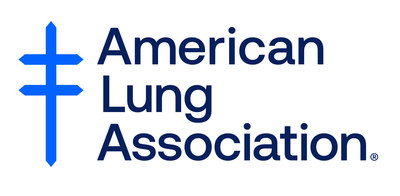American Lung Association offers tips to reduce health impacts of excessive heat this summer
WASHINGTON, May 15, 2024 /PRNewswire/ — Communities across the U.S. regularly experience extreme heat, floods and other disasters each year due to climate change. To protect the health of people living in these communities, the American Lung Association is offering steps that individuals and community leaders can take this spring to help reduce extreme heat this summer.
Two-thirds of the average U.S. city is made up of roads, parking spaces, sidewalks and roofs. Since these surfaces are typically dark and non-porous, they contribute to urban heat, flooding, increased air pollution and poor health. There are practical solutions that can help mitigate urban heat, improve air quality and benefit health. These solutions include reflective (cool) roofs and pavements, green roofs, trees, solar photovoltaics (PV) and rain gardens. The use of these innovative technologies can cool cities by 5°F and deliver large reductions in flooding.
“From the direct impact of the temperature and weather changes to the special burdens these changes place on the most vulnerable communities, climate change seriously threatens our wellness—especially our lung health,” said Harold Wimmer, President and CEO of the American Lung Association. “Increased heat in cities, combined with emissions from power plants, motor vehicles and other pollution sources creates ozone pollution, also known as smog. Smog impacts everyone, but is especially harmful to certain people like children, seniors, pregnant individuals and people with lung disease, low-income communities and communities of color.”
Here are three steps that both individuals and community leaders can take now to help reduce extreme heat this summer:
- Green Spaces and Planting Trees: Urban greening is the practice of planting trees, shrubs, and native grasses throughout the city, including parking lots, along streets, and in vacant lots. Urban trees provide shade which reduces temperature at the street level. Urban trees and greenscapes can reduce the temperature by up to 7°F during the day and 22°F at night. Greenscapes turn carbon dioxide into oxygen, remove pollutants from the air, and reduce flood risk. Urban greenscapes also reduce water pollution caused by runoff during heavy rains. Trees reduce the flood risk because trees absorb water during heavy rains.
- Reflective Roofs: Solar photovoltaic cells, also called Solar PV, convert sunlight into renewable energy, helping cities reduce their reliance on fossil fuels. Solar reduces energy demand from non-renewable power plants, reducing greenhouse gas emissions, and improving air quality. Solar panels also provide shade for buildings, sidewalks, and other public areas.
- Porous Pavement: Porous pavements allow rain to absorb into the ground, reducing pollution, stormwater runoff and flood risk. They can lower temperatures through evaporative cooling and act as a water filter, being cleaned as it passes through the soil into groundwater. Porous pavements decrease the likelihood of stormwater overflowing into sewers and bodies of water. Types of porous pavements include porous asphalt, concrete, permeable pavers, and porous grid pavers with turf or gravel.
Other strategies to reduce urban heat include using public transportation, carpooling and installing cooling centers in extreme conditions.
The American Lung Association is an active member of the Smart Surfaces Coalition and encourages both individuals and city leaders take actions to reduce extreme heat and air pollution in communities. Learn more and get involved at Lung.org/smart-surfaces.
About the American Lung Association
The American Lung Association is the leading organization working to save lives by improving lung health and preventing lung disease through education, advocacy and research. The work of the American Lung Association is focused on four strategic imperatives: to defeat lung cancer; to champion clean air for all; to improve the quality of life for those with lung disease and their families; and to create a tobacco-free future. For more information about the American Lung Association, which has a 4-star rating from Charity Navigator and is a Platinum-Level GuideStar Member, call 1-800-LUNGUSA (1-800-586-4872) or visit: Lung.org. To support the work of the American Lung Association, find a local event at Lung.org/events.
American Lung Association • 55 W. Wacker Drive, Suite 1150 • Chicago, IL 60601
1331 Pennsylvania Ave. NW, Ste. 1425 North • Washington, D.C. 20004
1-800-LUNGUSA (1-800-586-4872) Lung.org
CONTACT: Jill Dale | American Lung Association
P: 312-940-7001 M: 720-438-8289E: [email protected]
![]() View original content to download multimedia:https://www.prnewswire.com/news-releases/critical-steps-communities-can-take-now-to-reduce-extreme-heat-and-poor-air-quality-this-summer-302145733.html
View original content to download multimedia:https://www.prnewswire.com/news-releases/critical-steps-communities-can-take-now-to-reduce-extreme-heat-and-poor-air-quality-this-summer-302145733.html
SOURCE American Lung Association

Featured image: © healthhlsx



